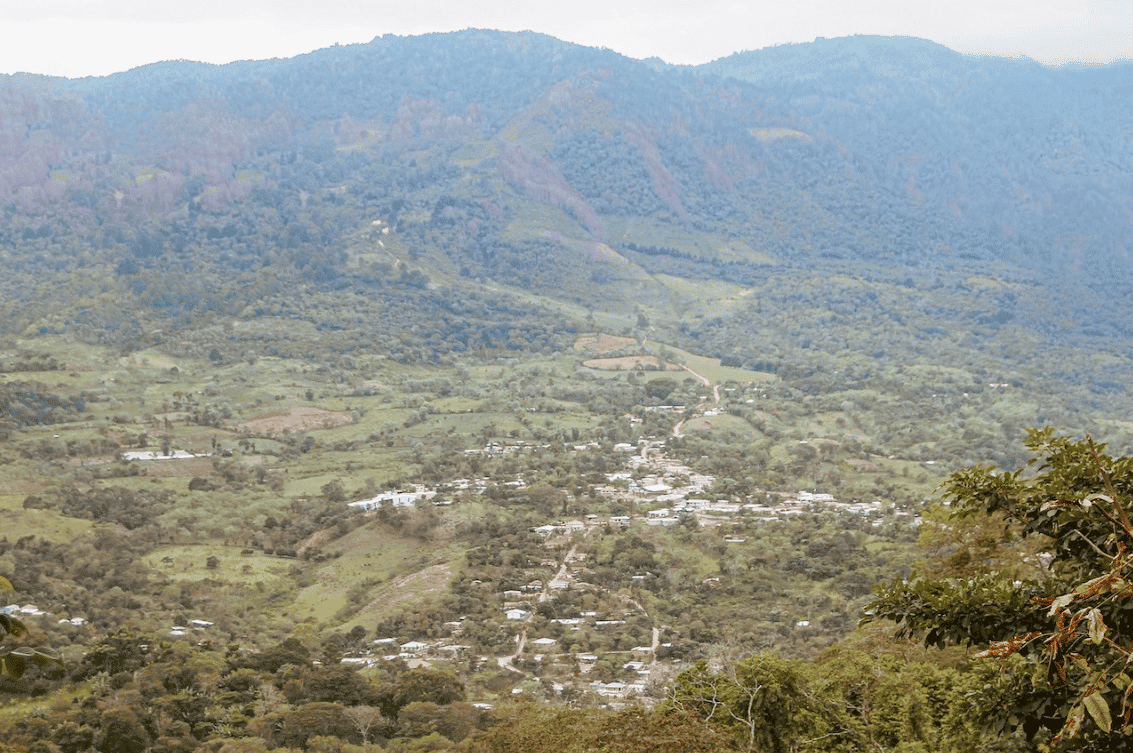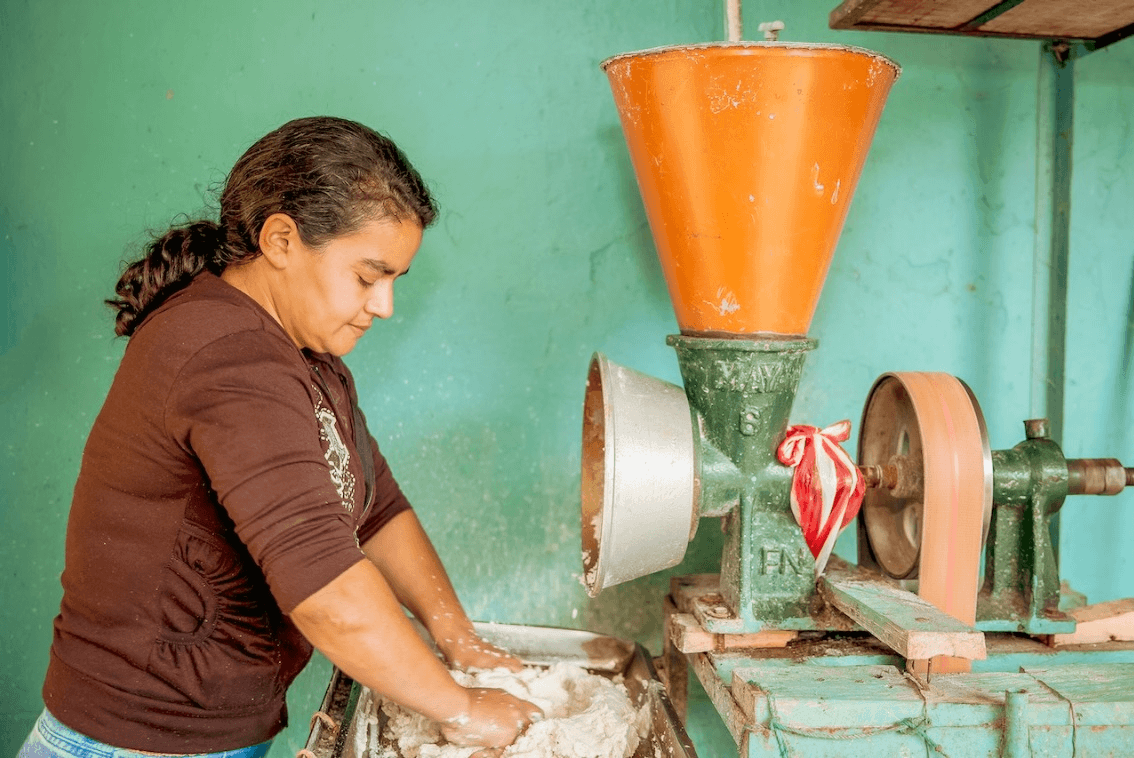
Located near the heart of Central America, Honduras shares its borders with Guatemala, El Salvador, and Nicaragua. Near the Guatemalan border lies the UNESCO World Heritage site of Copán, once a center of the Maya civilization that thrived from the 5th to 9th centuries. The country also boasts rich biodiversity. Numerous national parks and protected areas span the country, preserving an array of rare flora and fauna. After nearly 300 years of Spain's rule, Honduras declared independence in 1821. The nation honors Lempira, the chief of the Lenca indigenous people who led resistance to Spanish conquest in the 16th century, as a national hero and namesake of its currency. Honduras has strong ties with the United States, with US exports accounting for about 35% of the total, and remittances from migrant workers abroad contributing approximately 25% to the country's GDP. Agriculture is the major economic driver, and banana plantations prospered in the early 1900s under the initiative of American corporations. American writer O. Henry coined the term "banana republic" to describe Honduras as its economy fell at the mercy of government-backed multinational firms. Unlike some of its Central American neighbors, Honduras did not experience a civil war. In 1982, it became one of the first countries in the region to transition from military to civilian rule. However, Honduras still faces various challenges including political instability, high crime rates, and severe economic disparities. These struggles often compel Hondurans to seek opportunities in the US, whether for work or permanent relocation. Despite these difficulties, Honduras is striving to diversify its economy beyond its traditional reliance on coffee and bananas. The country has adopted three key strategies to free itself from the monoculture economy: 1. Promoting manufacturing industries such as textiles and auto parts in the Maquila bonded, export-processing zone. 2. Expanding tourism by leveraging its beautiful Caribbean beaches and Maya ruins 3. Improving basic infrastructure including roads, ports, and airports Through these efforts, Honduras is pursuing more stable economic development.

The Honduran government established IHCAFE (Honduran Coffee Institute) in 1970. The organization is dedicated to boosting Honduras's coffee production through quality improvement and infrastructure development. After transitioning to private ownership in 2000, it played a leading role in organizing Honduras's first Cup of Excellence in 2004. The institute also actively engages in developing new varieties, with Parainema and IHCAFE90 being well-known examples. IHCAFE provides a range of services to producers, including training programs and low-interest loans, which have helped motivate young people to work in agriculture. As a result, the average age of coffee producers in Honduras has been steadily decreasing, a rare phenomenon among coffee-producing countries worldwide. Honduras is emerging as a beacon of hope in the coffee-producing world. It demonstrates that countries primarily focused on commercial coffee production can successfully transition to specialty coffee, re-engage young people in agriculture, enhance sustainability, and increase the value of their coffee.
Pre-order Closed
Finca El Jardín 2024/25
Producer/Curator:
Mario Samuel Mejia Rodriguez
Mario Mejia grew up playing on drying patios and chasing his brothers through coffee trees. In La Paz, Honduras, where the cool mountain temperatures and steep slopes provide the perfect environment for cultivating coffee, the Mejia family has been dedicated to their land in Montecillos Sierra for four generations. A 16 hectare farm when it was inherited by his father, Finca El Jardin’s current 52 hectares are now managed by the youngest Mejia, Mario...Read More
524roasters are interested
97roasters purchased
Sample Request :
Start
End
Pre-oder :
Start
End
Estimated Delivery :
Late September 2025
Warehoused
CAFESMO 2022/23
Producer/Curator:
Sebastian Wiersma
An email from CAFESMO landed in our inbox at the beginning of 2022. It said the group found out about TYPICA’s platform through the introduction of an Amsterdam-based roaster. It was a pleasant surprise to know that there are producers in Honduras as organized and as committed to creating a sustainable coffee industry as CAFESMO. The samples we received soon afterwards were high…Read More
1,151roasters are interested
73roasters purchased
Sample Request :
Start
End
Pre-oder :
Start
End
Warehoused
CAFESMO 2021/22
Producer/Curator:
Sebastian Wiersma
An email from CAFESMO landed in our inbox at the beginning of 2022. It said the group found out about TYPICA’s platform through the introduction of an Amsterdam-based roaster. It was a pleasant surprise to know that there are producers in Honduras as organized and as committed to creating a sustainable coffee industry as CAFESMO. The samples we received soon afterwards were high…Read More
1,151roasters are interested
73roasters purchased
Sample Request :
Start
End
Pre-oder :
Start
End
Price
9 USDFOB/kg
Quantity
0/60 bags (30kg)
Samples
-
-
Price
9 USDFOB/kg
Quantity
0/30 bags (30kg)
Samples
-
-
Price
9.92 USDFOB/kg
Quantity
0/172 bags (30kg)
Samples
Out of Stock
-
Price
9.92 USDFOB/kg
Quantity
0/115 bags (30kg)
Samples
Out of Stock
-
Price
9.92 USDFOB/kg
Quantity
0/115 bags (30kg)
Samples
-
-
Price
9.7 USDFOB/kg
Quantity
0/80 bags (30kg)
Samples
-
-
Price
9.48 USDFOB/kg
Quantity
0/57 bags (30kg)
Samples
Out of Stock
-
Price
9.7 USDFOB/kg
Quantity
0/57 bags (30kg)
Samples
-
-
Price
9.92 USDFOB/kg
Quantity
0/57 bags (30kg)
Samples
Out of Stock
-
Price
6.75 USDFOB/kg
Quantity
0/0 bags (34kg)
Samples
Out of Stock
-
Price
7.7 USDFOB/kg
Quantity
0/0 bags (34kg)
Samples
Out of Stock
-
Price
8.3 USDFOB/kg
Quantity
0/0 bags (34kg)
Samples
Out of Stock
-
Price
15.1 USDFOB/kg
Quantity
0/0 bags (34kg)
Samples
Out of Stock
-
Price
7.95 USDFOB/kg
Quantity
0/0 bags (34kg)
Samples
Out of Stock
-
Price
11.02 USDFOB/kg
Quantity
0/0 bags (69kg)
Samples
Out of Stock
-
Price
8.45 USDFOB/kg
Quantity
0/0 bags (69kg)
Samples
Out of Stock
-
Price
8.65 USDFOB/kg
Quantity
0/0 bags (69kg)
Samples
Out of Stock
-
Price
8.75 USDFOB/kg
Quantity
0/0 bags (69kg)
Samples
Out of Stock
-
Price
8.75 USDFOB/kg
Quantity
0/0 bags (69kg)
Samples
Out of Stock
-
Price
11.95 USDFOB/kg
Quantity
0/0 bags (69kg)
Samples
Out of Stock
-
Price
10.85 USDFOB/kg
Quantity
0/0 bags (69kg)
Samples
Out of Stock
-
Price
9.55 USDFOB/kg
Quantity
0/0 bags (69kg)
Samples
Out of Stock
-